In the Heights Director Jon M. Chu on the Fear and Freedom of Making the Movie Musical

- Oops!Something went wrong.Please try again later.
Jon M. Chu was in grade school when he first picked up a camera. The filmmaker’s family was on vacation in Boston, and he brought a Super-8 to document it. Until then, he’d thought he’d grow up to become an animator—for years he’d been mailing his drawings to Disney, care of an employee whose name he saw on a wall during a theme park visit—but the trip changed his mind. “Once I picked up a camera,” he says, “that's when I realized, you don't have to draw all these frames.”
Back at home in the San Francisco Bay Area, Chu put together his film using a mixer he’d convinced his father to buy from The Sharper Image and VCRs and CD players pilfered from his siblings. He screened it for his parents (restaurant owners who appreciated pop culture enough to name Chu and one of his sisters after characters from the TV series Hart to Hart) and immediately became aware of the power a camera could give him. “It was that moment they saw our family on TV, seeing us like a normal American family having a good time… I think it really moved them,” he says today. “I'm not sure they remember that, but I remember how it made me feel, like they were listening to me. I didn't stop after that. I knew I was going to do it for the rest of my life.”
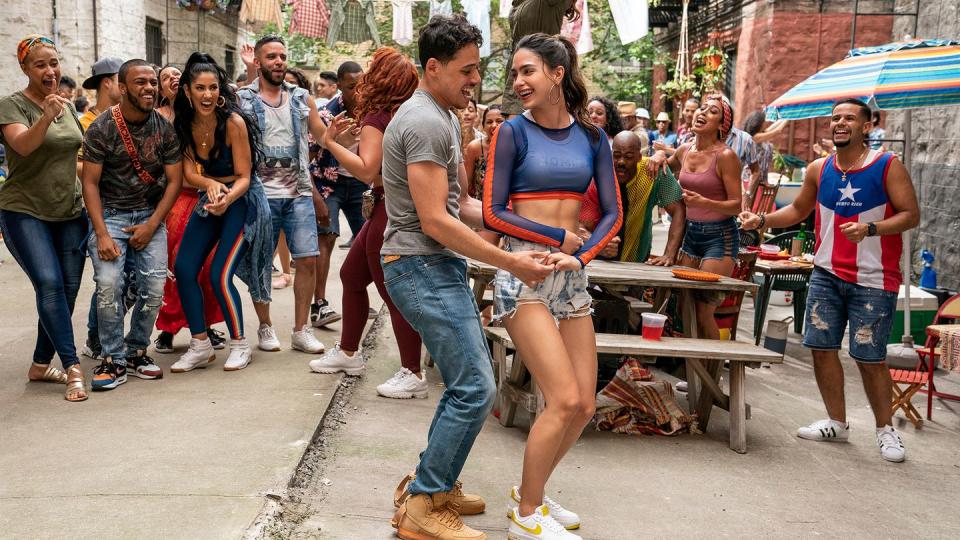
It’s not difficult to see a through line from that moment to In the Heights, Chu’s larger-than-life musical opening June 10 in theaters and on HBO Max. The adaptation of the Tony-winning Broadway show by Lin-Manuel Miranda and Quiara Alegría Hudes will not only have audiences paying attention but also aims to show them characters—people of underrepresented backgrounds in a New York City neighborhood that doesn’t regularly get glamorous treatment in media—they don’t often see on screen.
“The two things I'm most scared to talk about are growing up in an immigrant community and having that conflict [how do I] move forward,” Chu says. “Our parents came with these bags—what do we take forward in our bags now? What are we putting in there and what do we kick the tires on?”
Chu mostly avoided the subject in his earlier films, which include Step Up 2: The Streets, G.I. Joe: Retaliation, and Now You See Me 2. “The thing that frightened me the most was my cultural identity crisis, the stuff I never wanted to talk about,” he says. “I had done one short film in college”—he attended film school at USC and often made short musicals—"called Gwai Lo: The Little Foreigner, [because] ‘the white devil’ is what they called me when I went to Hong Kong for the first time. It got a great reception, but I was so embarrassed by it. I was so self-conscious that I never put it into festivals. For 10 years, I was like, ‘I'm not going to be the Asian-American director. I'm going to be the director. I don't want to talk about it, I don't want think about it. I'm just going to blend.’ And it worked for me.”
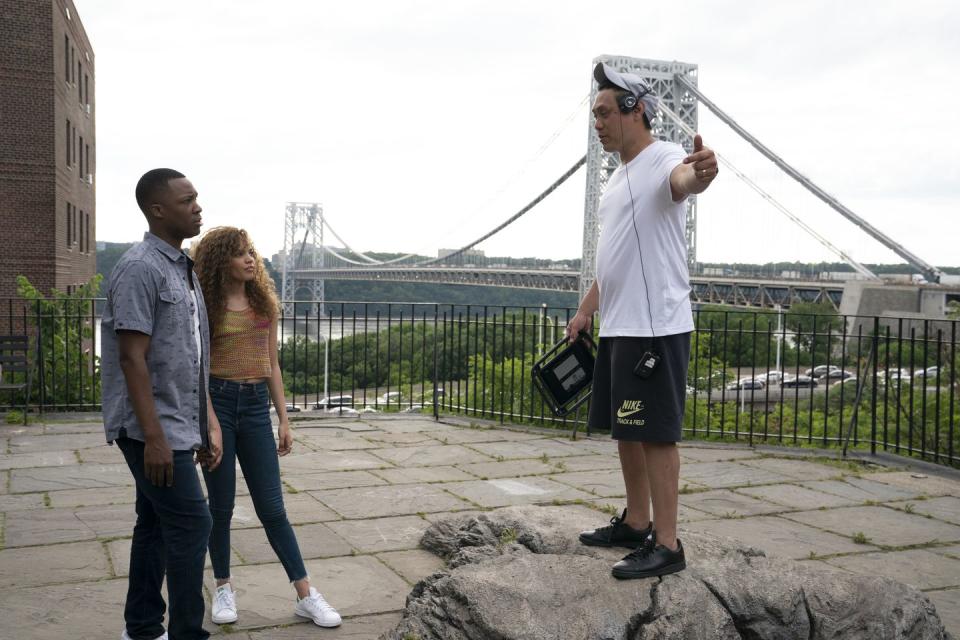
That is, until it didn’t. A few years back, Chu read Kevin Kwan’s bestselling novel Crazy Rich Asians. “I'd just gotten so many people asking, ‘Have you read this book,’ it was crazy.” The book struck a chord. “It clicked with me,” he says. “Not the rich part of it, but the idea of Asian-American girl going to Asia for the first time. That was it, I knew how to tell that story.”
It’s no wonder Cray Rich Asians clicked, considering the source material. “Jon and I have the craziest story ever,” Kwan tells T&C. “Did you know he was in Crazy Rich Asians the book? A cousin of his is a longtime friend of mine, and her stories about her family inspired me to create the Chu family in my book. I had a fascination with this All-American Asian-American family and was inspired to create that family for my character Rachel. In the book, there’s a moment when [the character of] Nicholas is defending Rachel to his mother, and he says something to the effect of ‘Rachel comes from a really accomplished family in America; one of her cousins is even a famous director.’ That was my nod to Jon.”
Kwan met Chu at the premiere of his 2011 documentary about Justin Bieber—“he turned me into a fan,” Kwan says, “no small feat considering I am someone who listens to archaic Baroque music”—but says he never expected the director to take on the film adaptation of his novel. “He was such a superstar,” Kwan says, “I thought that there would be no way he’d want to work on this little movie about a Chinese family.”
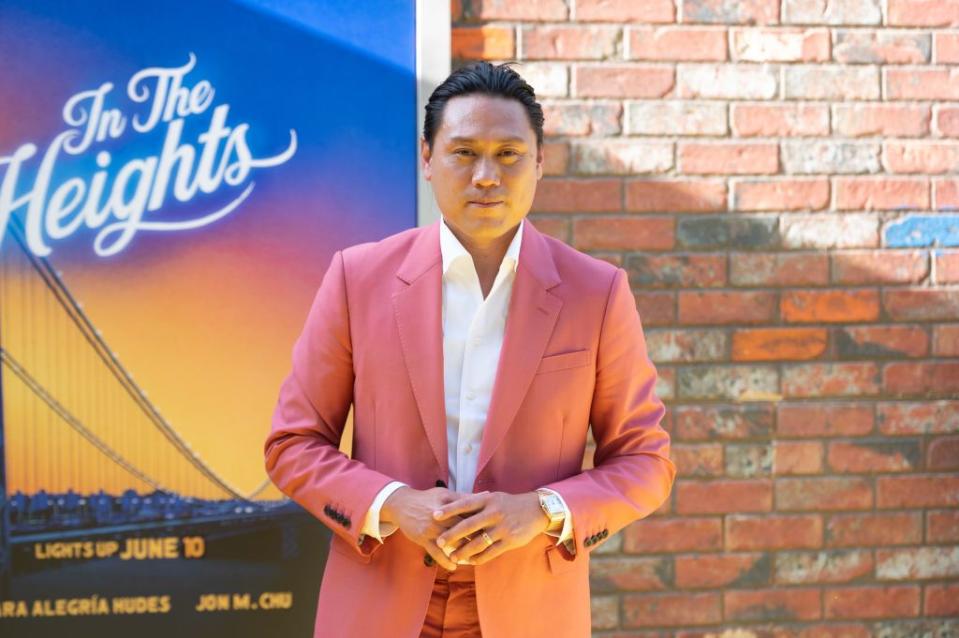
But he did. Chu made the film, which earned two Golden Globe nominations and made close to $240 million worldwide since its 2018 release. (Two sequels, based on Kwan’s novels, are currently in development.) “It hit me that there was a moment that was happening around me,” Chu says. “I had a lot of support from the Asian-American community, and from other filmmakers, but I wasn't using it to its full power, and so I stopped everything, and I told my team, ‘I need to do something that can only be made with me, that you can't just replace me on.’ It took me 10 years to realize that I deserve to be there.”
It was a line of thinking that also brought him to In the Heights. Chu had seen the show when it was on Broadway—one of his Step Up dancers was in the cast—and found an immediate connection. “It just really hit home, not just because we were working with a lot of Puerto Rican and Dominican dancers in Step Up and that was the language we were already playing with in the movie,” he says, “but it was this immigrant community story.”
Chu saw similarities between the show’s subject—about a Washington Heights bodega owner and his tight-knit neighborhood—and his own life and hoped others would have the same experience. “I grew up not in Washington Heights, and I'm not Latino, obviously, but in a Chinese restaurant in the Bay Area, so I knew what it felt like to have your aunties and uncles take care of you,” he says. “I knew what it felt like to have [my grandmother] teach us how to fold wontons and do the books for the restaurant every night on her abacus. I remember the sound and these little details of smell, sight, and music, that were always around me. The show said everything that I could never say about what it felt like to grow up like that.”
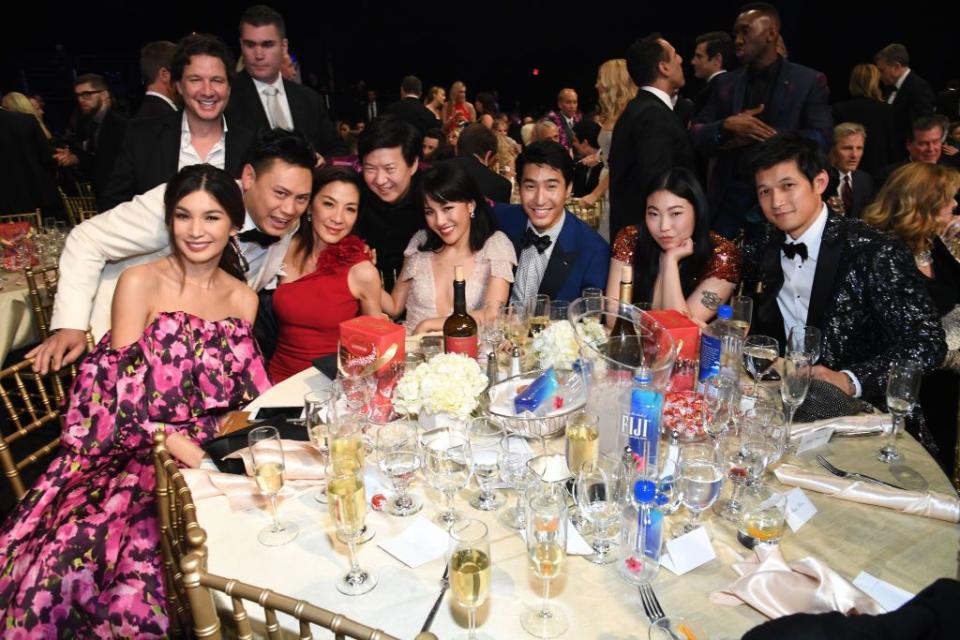
Chu heard soon after seeing In the Heights that a film version of the show was being developed, but it wasn’t until years later, when the project had landed with producers Scott Sanders and Mara Jacobs, that he had a lightbulb moment about getting involved himself. “Scott called and said, ‘What do you think about In the Heights,’” he recalls, “and I remember it moved me, but it was very Broadway show. They're singing to the stars, there are big openings and closings of every song. It's a lot. And there's not really a plot; it's like a slice of life. I was like, ‘Let me just read it.’
“It didn't hit me until when I read it that time. I was, at that moment, trying to figure out who I was as a filmmaker. I'd done all these movies, but what was I trying to say? When I read In the Heights again, I felt that same feeling as when I saw it on Broadway. I was like, this is what I'm looking for in terms of telling a unique story of a first-generation person in America. That's an all-American story. That is who I am, and this is what I should be doing.”
If Chu’s vision for the film was entirely clear, however, the road to making it wasn’t. After pitching his idea for bringing In the Heights to the screen to Sanders and Jacobs, they encourage him to meet Miranda—but first he had to meet Harvey Weinstein, the now-disgraced movie mogul who, at the time, was involved with the project.
It was Christmas Eve and Weinstein called, summoning Chu from San Francisco to Los Angeles for a morning meeting the next day. Chu, who was already working on Crazy Rich Asians, decided to go in order not to miss the window of time he’d have to make Heights.
“Harvey called Christmas Eve and was like, ‘Get back to the Peninsula, 7 AM tomorrow,’ I said, ‘I'm in San Francisco. My family has this big...’ and he said, ‘You have to come. It'll be a good story.’ So, I left, got there in the morning, had breakfast with him on the roof, and the first thing he said to me was, ‘How's Star Trek going?’ He thought I was Justin Lin, the other Asian director. That's how our relationship started.”
Chu pitched Weinstein his idea for In the Heights anyway, proposing a movie about what he calls “a neighborhood that you may pass through and never think twice about but made the center of a big musical that shows dreams bigger than any musical we’ve seen before.” It didn’t go over so well. “I pitched him the whole thing, and he was like, ‘I love it. Except for the dreams part,’” Chu says. “‘People don't want to see movies that don't take you somewhere else. They have to be transported to a mansion; they have to be transported to a golf course.’ I was like, ‘Oh, well, that's my whole pitch.’”
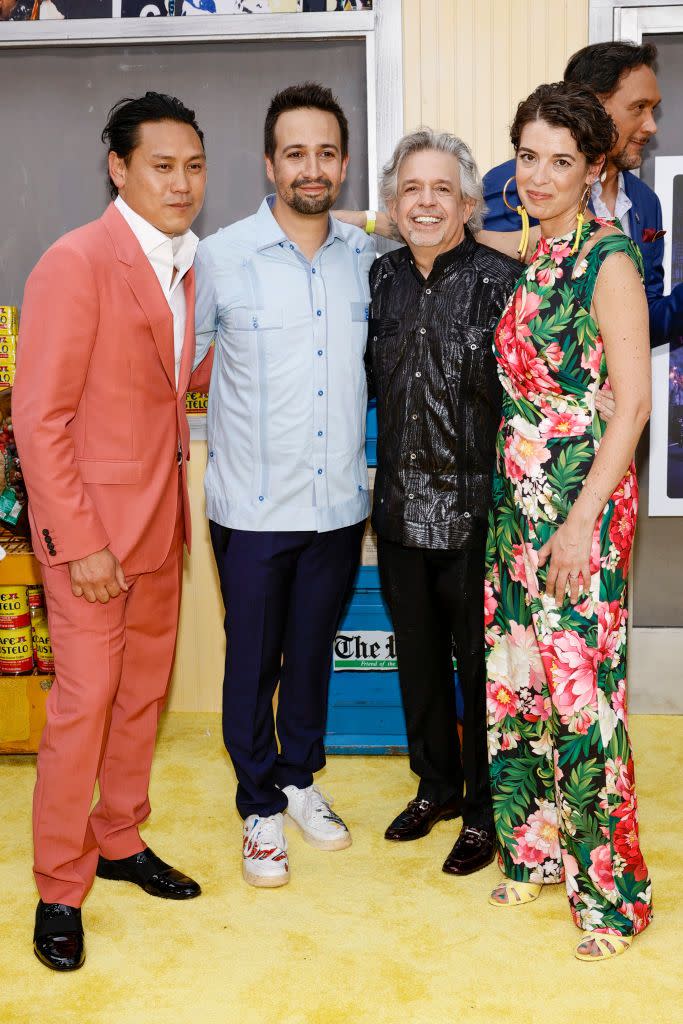
It was only after Chu started working directly with Hudes and Miranda that things really began to take shape. “I flew to New York and sat with Lin for the first time in a café,” he says, “and I walked him through my images, and I pitched him the idea about the dreams that we wanted to put inside Washington Heights. And I think we really connected.” (In 2018, Warner Bros. bought the film’s rights from Weinstein ahead of his company’s bankruptcy and he’s had no involvement with the project.)
Chu’s ideas of how the film should depict the characters and their stories didn’t get watered down. Heights star Leslie Grace says, “What I love about Jon is that he never loses his sensitivity to the details that might seem minuscule but to our story are so important. He’s the kid of immigrant parents, so he knows the little details—the ones that assert our dignity and tell the world we’re not invisible. That was so necessary for this story, and we wouldn’t have gotten that magic if it weren’t for a director like Jon.”
That magic is palpable. The film is receiving some of the year’s best reviews—the Washington Post calls it “the first genuinely cheerful, splashy, life-affirming movie of the summer”—and seems poised to make Chu into a director responsible for back-to-back hits. It’s a poetic outcome for a filmmaker who began his career following his own family with a camera and has found dizzying success telling stories that puts stories of similar families front and center—and that’s not lost on him.
Thinking about In the Heights, he says, “it has hit me that all the times I was in my bedroom, dreaming about being a filmmaker, dreaming about not being in the restaurant business, watching TV, imagining myself somewhere in Hollywood, that I was actually in Hollywood. I love the idea of a neighborhood that dreams big with hopes and aspirations were bigger than its walls. We wouldn't take these characters to a mansion to dream about what it would feel like to be rich, it would be all in Washington Heights. That's the way you dream when that's all you know, because that's the way I dreamed.”
You Might Also Like

